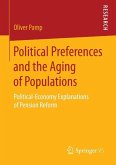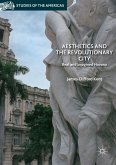Contents
- The influence of legal and demographic changes on the development of the electorate
- Demographic projections: The influence of demographic trends on the development of the electorate
- Policy scenarios: The influence of legal changes on the development of the electorate
- The development of the German electorate: Trends and consequences
Target Groups
- Political Scientists (areas of study: democratic theory, political systems and institutions, electoral studies) and Demographers (areas of study: population projections, population ageing, migration/integration)
- Persons working in ministries, parties and public administration, interest groups (migrant organisations, foundations and institutions who are interestedin the rights of future generations)
The Author
Nora E. Sánchez Gassen is a Research Fellow at the ESRC Research Centre for Population Change of the University of Southampton (UK).
Dieser Download kann aus rechtlichen Gründen nur mit Rechnungsadresse in A, B, BG, CY, CZ, D, DK, EW, E, FIN, F, GR, HR, H, IRL, I, LT, L, LR, M, NL, PL, P, R, S, SLO, SK ausgeliefert werden.









